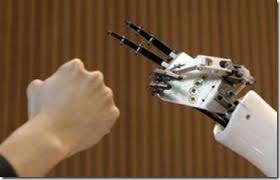
Albi, France
It has now been 23 years since I headed up the process automation practice at CCL a major R&D facility on the UK’s Cambridge Science Park. Then the state of robotics was fairly rudimentary, but we still managed to turn a robotic device on its side and developed the first all singing and dancing flow wrapping machine for Cadbury’s wispa bars.
Decades later, robots remain largely confined to industrial processes and materials handling – but the take-up is now progressing more quickly than ever and humanoid devices are at last becoming a reality. So will the human resources function have to change its name soon to cyber resources as robots take over an increasing amount of activities so far confined to human hands? Will HR and IT departments need to merge?
The good thing about machines is that they never strike, or take sick leave, or need rest breaks – and can even work in the dark. If we do a discounted cash flow on their capital cost they will soon all win out against expensive humans. So why hire a person, when an obedient robot is available?
The problem for society is that the world has never had so many people and yet work remains the most important vehicle for distributing wealth. What will happen to the wealth distribution system if robots take over most jobs (as they surely will over the next 25 or so years)? Will there be a period where humans have to compete with robots and see their salaries tumble? Will there be a luddite backlash – and how will HR departments survive?
Either governments and industry will need to re-engineer the economies of the world to create alternative ways to distribute cash and resources or a huge crisis will emerge and few will be able to afford the products and services automated systems provide.
I personally think that no-one will rise to this challenge and chaos will ensue. It is a greater short-term problem than global warming, but few seem to be addressing it. We are currently seeing a huge exodus of displaced people coming into Europe from Africa and the Middle East, but the disorder has yet to get into full swing because the existing populations of the advanced economies have not been displaced in sufficient numbers yet by automation. But that day will come.